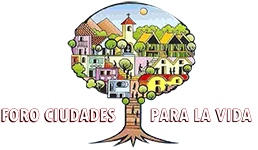Our Vision
We want CITIES FOR LIFE which are expressions of sustainable development and provide a good quality of life for their inhabitants. Cities which provide a healthy, safe, productive and supportive environment. Cities which are in harmony with their surrounding environment, cultural traditions and spiritual values, taking into account the diversity of their country.
We want CITIES FOR LIFE with which people can identify themselves and through which they can participate actively in their development. Cities in which people are proud of their culture and the environment in which they live. Cities for which in habitants feel responsible and liable.
Our Mission
We are a national network set up as a non-profit civil association consisting of three kinds of institutional actors: local governments, universities and civil society organizations (NGOs, grassroots organizations and business associations). With the participation of these actors, FORO generates alliances and provides a space in which common goals can be pursued.
We seek to encourage, raise awareness, facilitate and promote opportunities for consensus to develop and manage our cities in accordance with the principles of the UN’s Agenda 21, and to support training institutions to do the same thing.
The joint activities of the Foro are focused on research, policy advocacy, leadership training and developing programs for sustainable urban development. In addition, FORO’s partners run specific projects in their local areas in line with our mission and objectives.
Our Main Objective
To contribute to the overcoming of barriers to sustainability in cities, improving environmental quality and the management capabilities of public and private actors through the processes of the Cities Agenda 21.
Strategic Objectives
- Capacity Building and Promotion of Cities’ Agenda 21 Strengthening decision and management capacities aimed at promoting and implementing Local Agenda 21 and Participatory Budgeting in cities and their surrounding territories.
- Urban Development and Sustainable Construction Developing capacities and synergies in order to reduce physical and social vulnerability, preserve ecosystems and facilitate sustainable construction to achieve cities for life.
- Environmental Quality Contributing to the improvement of the quality of air, water and soil through good practices in controlling, monitoring and recovering as well as in the integral management of waste.
